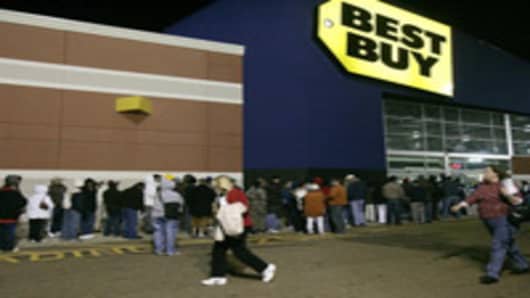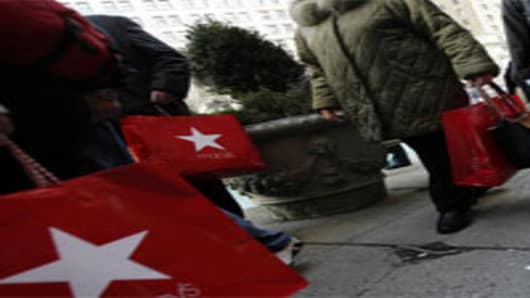"It’s a very promotional holiday season, particularly since it’s a shorter shopping season than usual with Thanksgiving falling so late, so retailers are going to be quick to cut prices and get their promotions out there to attract what little shopping is going on,” says Frank Badillo, senior economist for TNS Retail Forward, a market research and consulting firm in Columbus, Ohio. “But it’s going to be challenging for every retail category across the board this year.”
Sales and spending forecasts are mixed, with some calling for modest increases, others are actually predicting a decline—no small matter for retailers, which derive between 20 percent and 40 percent of total annual sales during the November-January shopping season.
Though no one is predicting blockbuster sales in any category this year, some stores will fare better than others. Here’s a look at the expected winners and losers.
Winners
Discount vendors are well positioned to take their place in the winner’s circle, notes Kimberly Picciola, lead retail analyst for Chicago-based mutual fund tracker Morningstar.
“There’s going to be weakness all around, but stores that focus on popular gift items and competitive prices are going to hold up better,” she says. “Consumers are going to be very price sensitive.”
The value category includes deep discount grocery stores such as ALDI, a privately held German chain that is taking root in the U.S., Save-A-Lot Food Stores in St. Louis, Mo., a subsidiary of SUPERVALU and privately held Trader Joe’s, a specialty grocer in Monrovia, Calif. that focuses on organic products.
“People have to eat, but they’re increasingly looking to save some money on the basics,” says Badillo.
Discount vendors, of course, also include off-priced clothing stores such as TJ Maxx and Marshall’s, both owned by The TJX Companies, Ross Dress for Less and Burlington Coat Factory, owned by .
“We’re seeing quite a pull-back from high-end consumers who tend to be more cautious in times when the stock market is not performing well so I think we’ll continue to see some trading down to off-priced retailers,” says Picciola.
Big box discounters, meanwhile, including Wal-Mart Stores, KMart, a unit of Sears and Target will also continue to benefit from shoppers of all income levels seeking value and convenience.
"Super centers that offer a combination of discount department store products and grocery items, which are primarily operated by Wal-Mart and Target, are doing particularly well right now," says Badillo.





